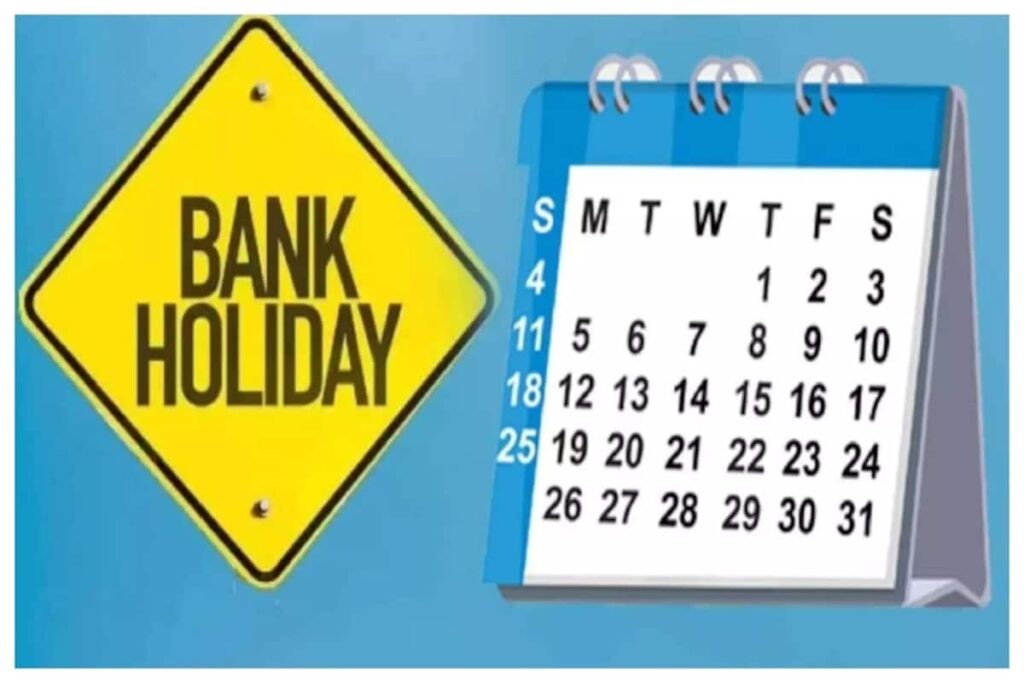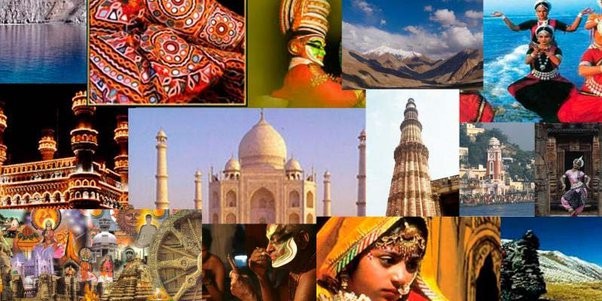Where Is Prostitution Legal In India?
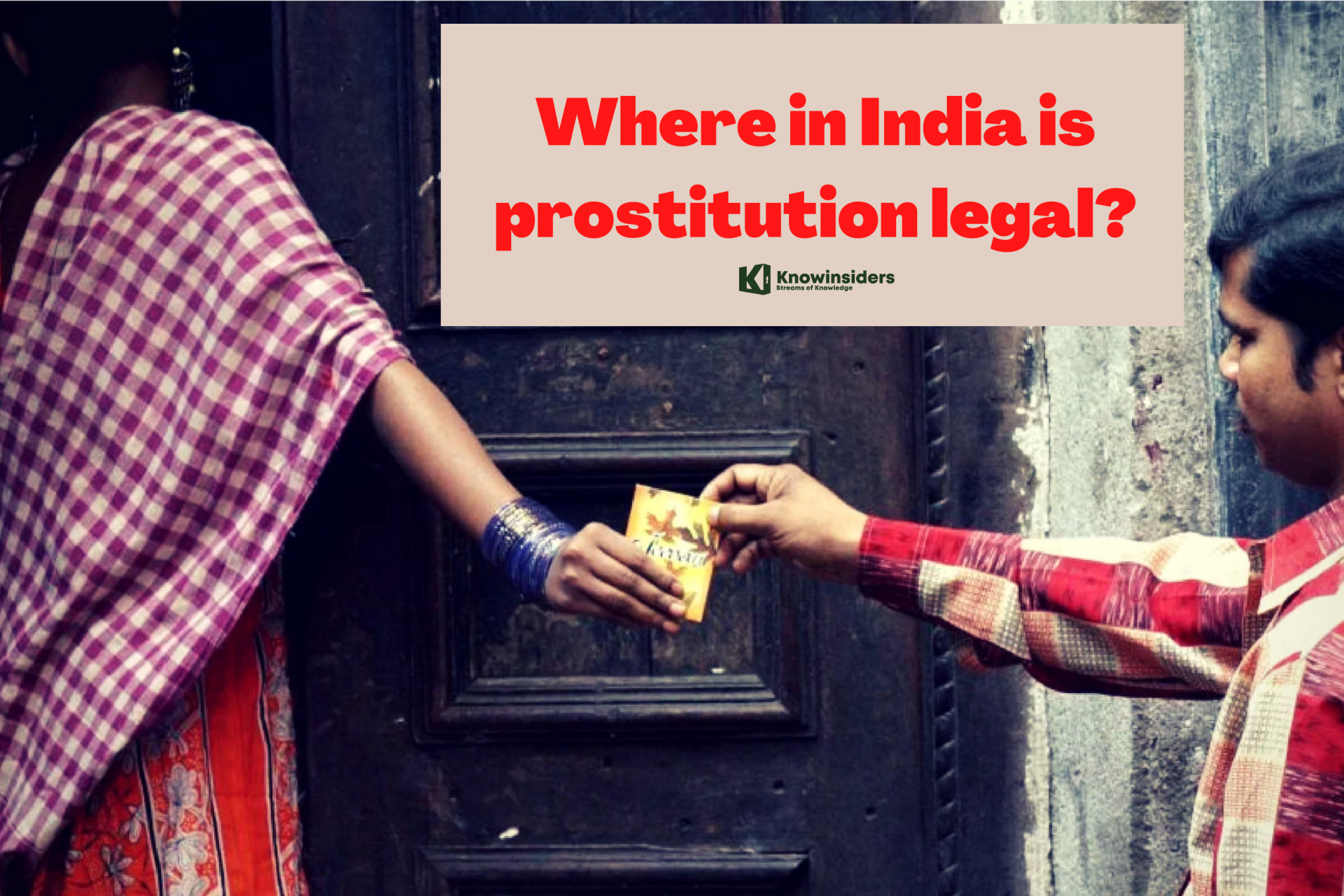 |
| Photo: KnowInsiders |
| Table Content |
It is a general misconception that prostitution in India is illegal, rather prostitution is legal but pimping, owning and managing a brothel is illegal. Mumbai, Delhi, and Kolkata are the major cities in India where brothels are operating illegally in large numbers. Prostitution in itself is neither illegal nor punishable under the act. This article explores the arena of prostitution and does justice to those weaker sections by legalizing this Act.
Legalization of Prostitution In India
Prostitution in India is an age-old profession. There are in fact, mention of sex workers in various Hindu mythological inferences referred to as apsaras. During the pre-colonial period, there existed the devadasi system where it was a prevalent practice among Hindus to give away their female child as a sign of their devotion towards god. Devdasi in a literal sense means devoted to the god, that is they were married to god and were not required to marry any mortal being.
They were sexually liberated women who excelled in various art forms including classical dance and music. However, colonialism brought a system of exploitation and suppression. The British started reflecting their own societal restrictions on these women where they morphed the fundamentals of sexual liberation, femininity, art and culture into devotion, bhakti, etc., and further, with the diminishing feudalism and the end of colonialism, these women started getting mishandled by the temple priests. Therefore, leaving them vulnerable to sexual exploitation and poverty. This is one of the oldest forms of prostitution present in India.
Causes Of Prostitution:
Ever since the Mughal empire collapsed, the situation started to deteriorate for the lowest strata of the society especially, the women who were serving in harems, palaces and brothels. Poverty is the biggest cause of prostitution. In an Indian patriarchal society, it is difficult for a woman to be financially independent especially when she has been deprived of education, liberty and skills. Therefore, prostitution becomes the sole profession to earn money.
Women being vulnerable to sexual exploitation is a product of the restrictive, orthodox Indian society which sees them merely as an object or a commodity. Another main cause of prostitution is the prevalent caste system in India where marginalized women are often sexually exploited and left to rot in the degraded system. Lack of sex education, kidnapping, and abduction become other causes for prostitution.
The Practice of Sex Trade
Before contending on the legalization of prostitution, one must acknowledge the existence of it and the need for it in society and especially, the Indian one was talking about sex is still a major taboo. Various people often argue against the legalization of prostitution and demand the criminalization of the act and the rationale behind their point of contention is mostly its immoral nature.
However, we do not realize that though, a majority of people consider prostitution as something immoral yet, the sex work industry is flourishing consistently just like any other industry functions on demand. If the demand increases, then, the business flourishes in terms of commercialization.
Demand for buying sex is so high that it has spread its roots from the red light areas to private massage parlors and online platforms. Criminalizing the act altogether would be like putting a blind eye to the actual victims of sexual exploitation and giving a free passage to more oppression and violence against the sex workers.
Is Prostitution legal in India?In the Indian context, prostitution is not explicitly illegal though pronounced to be unethical by the Court, certain acts that facilitate prostitution are regarded as illegal and acts like managing a brothel, living off the money procured by means of prostitution, soliciting or luring a person into prostitution, traffic of children and women for the purpose of prostitution, etc. are made explicitly illegal by the Immoral Traffic (Prevention) Act, 1956 (ITPA). For example, running a sex racquet is illegal but private prostitution or receiving remuneration in exchange for sex with consent without prior solicitation might not be illegal. |
Laws related to Prostitution
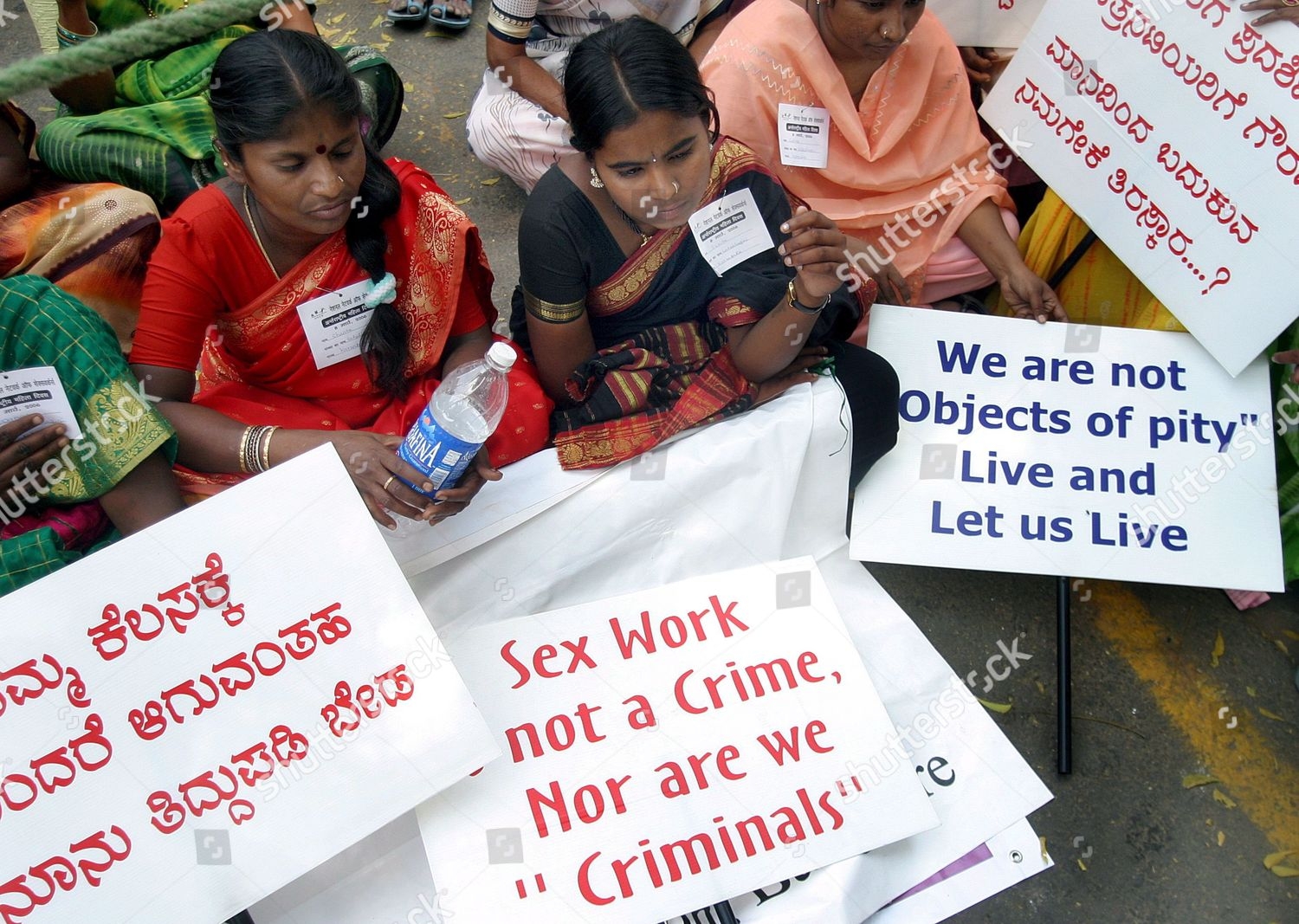 |
| Photo: Shutter Stock |
ITPA defines “prostitution” as sexual exploitation or abuse of a female for monetary purposes and a “prostitute” is the person who gains that commercial benefit. The Indian Penal Code of 1860 also deals with prostitution but it is limited to child prostitution. However, it attempts to combat activities such as kidnapping in general, kidnapping for the purpose of seduction and luring a person into sex, importing a girl of a foreign country for sex, etc.
In addition, Article 23(1) of the Constitution prohibits traffic in human beings and beggars and other similar forms of forced labor. Article 23(2) declares that any contravention of this provision shall be an offense punishable in accordance with the law.
It was stated in Raj Bahadur v. Legal Remembrancer[1], that
“Clause however permits the State to impose compulsory services for public purposes provided that in making so it shall not make any discrimination on grounds only of religion, race, caste or class or any of them. 'Traffic in human beings' means selling and buying men and women like goods and includes immoral traffic in women and children for immoral" or other purposes.”
Main Provisions of Immoral Traffic (Prevention) Act, 1956:
The statute governing the subject of prostitution in India is the Immoral Traffic (Prevention) Act, 1956. The constitutionality of this Act was challenged in the case of The State of Uttar Pradesh v Kaushalya. In this case, a number of prostitutes were required to be removed from their place of residence for maintaining decorum in the city of Kanpur. The High Court of Judicature at Allahabad contended that Section 20 of the Act abridged the fundamental rights of the respondents under Article 14 and sub-clause (d) and (e) of Article 19(1) of the Constitution. The Act was held to be constitutionally valid as there was an intelligible difference between a prostitute and a person causing a nuisance. The Act is also in consonance with the object sought to be achieved ie. maintaining order and decorum in society.
This Act dims at suppressing prostitution in women and girls and achieving a public purpose viz. to rescue the fallen women and girls and to stamp out of prostitution and also to provide all opportunities to these fallen victims so that they could become decent members of the society. This Act seeks to criminalize the acts amounting to prostitution as mentioned above and authorizes the police to remove them, close brothels and move them to institutions that may reform them. It empowers the Central Government to establish a Special Court to try offenses under this Act.
A Proposed Amendment in 2006:
There was a proposal made in 2006 to amend the Immoral Traffic (Prevention) Act . The amendment bill basically removes the provisions that penalize prostitution by soliciting clients. This proposal recommends enhanced punishment and an increased fine amount. It intends to criminalize the act of visiting a brothel for the purpose of sexual exploitation of trafficked victims with imprisonment of at least three months or a fine of Rs. 20,000 which has not been criminalized in the Act.
The bill constitutes authorities at the center and state level to combat trafficking. The term trafficking in persons has been defined with a provision for punishing any person who is guilty of the offense of trafficking in persons for the purpose of prostitution.
Article 21 of the Indian Constitution The article states the protection of life and personal liberty. No person shall be deprived of his life or personal liberty except according to the procedure established by law.
In the case Budhadev Karmaskar v State of West Bengal
In this case, it was held that sex workers are human beings and should be treated with humanity and dignity. Nobody is entitled to physically assault them. The judgment also highlighted the problems faced by the sex workers and their plight. The court is of the view that these women are compelled to indulge in prostitution not out of choice or pleasure but merely out of economic and social causes.
The court directed the central and state government to enroll the sex workers in vocational and technical courses and open rehabilitation centers for better job opportunities for them. Immoral Traffic (Prevention)Act has incorporated Section 21 as a rule for the State Government to establish and maintain the protection homes and the houses should be regulated and licensed by them. There should be an adequate authority for the investigation of the application for the protection homes. These licenses were temporary and nontransferable. The state has powers to make ancillary rules in respect of license, management and maintenance of these homes or ancillary matters by virtue of section 23 of the act.
Article 23(1) also declares that traffic in human beings and the beggar and other similar forms of forced labor are prohibited and any contravention of this provision shall be an offense punishable in accordance with the law.
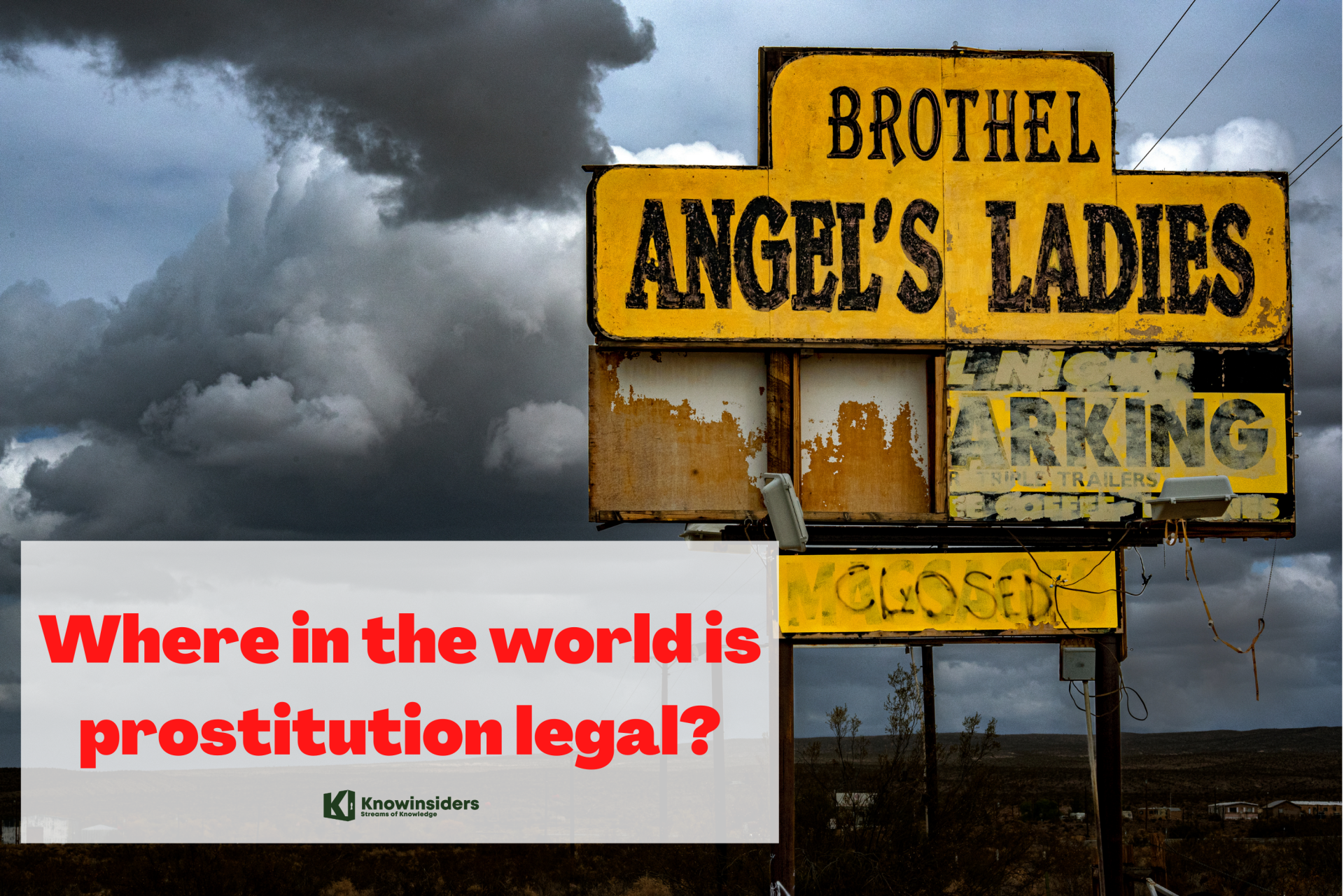 Where Is Prostitution Legal In The World? Where Is Prostitution Legal In The World? Prostitution exists and will continue to exist despite bans and their legal status, due to reasons like poverty or unforeseen situations. |
Problems with the Indian Laws and their Purpose:
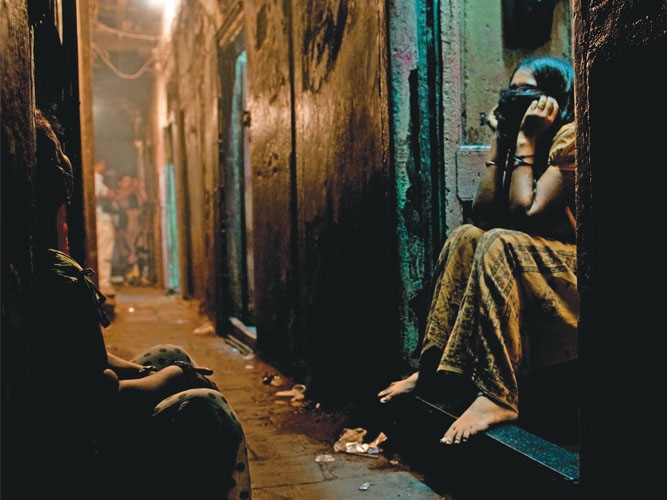 |
| Photo: Forbes India |
The main problem with these provisions is that the outlook towards prostitution is something immoral and indecent and something which is hampering the decorum of society. However, the fact remains that engaging in sex work with precautions and regulations does not constitute any sort of harm to any individual. Further, the only reason why prostitution is referred to as something immoral and the sex workers are regarded as indecent is solely because of how sex is a major taboo in our society and demand and supply of sex in a regulatory manner is something to be looked down on upon.
The Indian society cannot digest the reality of the sexual violence happening because of the existent norms related to sex present in the society and people believing and continuing to thrive on these norms. The fact that the act tries to criminalize the acts leading to prostitution expresses the discomfort of the law at facing the real issue and makes the temporary and half-hearted amendments in combating the issue.
Another main aspect of Indian laws related to prostitution that goes unnoticed is that these laws do not acknowledge that it is not only women who are victims of sexual exploitation but it is men and transgender people who suffer from sexual violence, exploitation and oppression.
Laws for the protection of sex workers and their rights:
The right to life enshrined under Article 21 is also applicable to a prostitute. This was explained in the case of Budhadev Karmaskar v State of West Bengal. It stated that sex workers are human beings and no one has a right to assault or murder them as they also have the right to live.
The judgment also highlighted the plight of sex workers and empathizes that these women are compelled to indulge in prostitution not for pleasure but because of abject poverty and directed the Central Government and State Governments to open rehabilitation centers and impart technical and vocational skills like sewing so that they attain other means of livelihood. Following this direction, the Immoral Traffic (Prevention) Act has incorporated Section 21 as a rule for the State Governments to establish and maintain protection homes and these should be regulated by licenses issued by them. An appropriate authority should be appointed for making an investigation for the application of the license for the protection homes. These licenses are not transferable and are valid only for the specified period.
The Government is empowered to make ancillary rules in respect of license, management, and maintenance of protection homes, or ancillary matters by virtue of Section 23 of the Act.
What are illegal activities related to prostitution?
Immoral Traffic (Prevention) Act, 1956 declares certain acts to be illegal. These acts include a solicitation for prostitution, managing a brothel or allowing the usage of certain places as brothels, living on the earnings of a prostitute’s money, inducing or kidnapping a girl for prostitution, detaining girls in brothels, seducing a person under custody for prostitution and carrying out prostitution within 200 meters of any public place like schools, colleges, temples, hospitals, etc.
What are the punishment and penalties for indulging in illegal activities?
The above-mentioned activities attract heavy penalties such as rigorous imprisonment even at the first instance of conviction. The minimum punishment for brothel-keeping is imprisonment for a term of not less than one year and not more than three years and also with a fine which may extend to two thousand rupees. The offense of procuring a girl child for prostitution attracts rigorous imprisonment for a term of not less than seven years but may extend to life. Seducing or Soliciting for prostitution under the unamended Act for first conviction attracts a punishment of imprisonment for six months or fine of rupees five hundred and for the second conviction, imprisonment up to one year or with fine of rupees five hundred. In addition, the Indian Penal Code under Section 370A punishes the offender for the exploitation of a trafficked minor with imprisonment of five to seven years.
What are the laws to prevent forced prostitution?Forced prostitution is where young children or teenagers are compelled into prostitution due to numerous factors. Indian Penal Code, 1860 penalizes child prostitution, namely selling and buying of minors for the purpose of prostitution. Section 372 of the Code awards imprisonment of at least ten years for a person selling a minor for the purpose of prostitution. Section 373 of the Code awards imprisonment of ten years for buying a minor person for the purpose of prostitution. The explanations to these sections indicate only the trade of minor girls and not boys. |
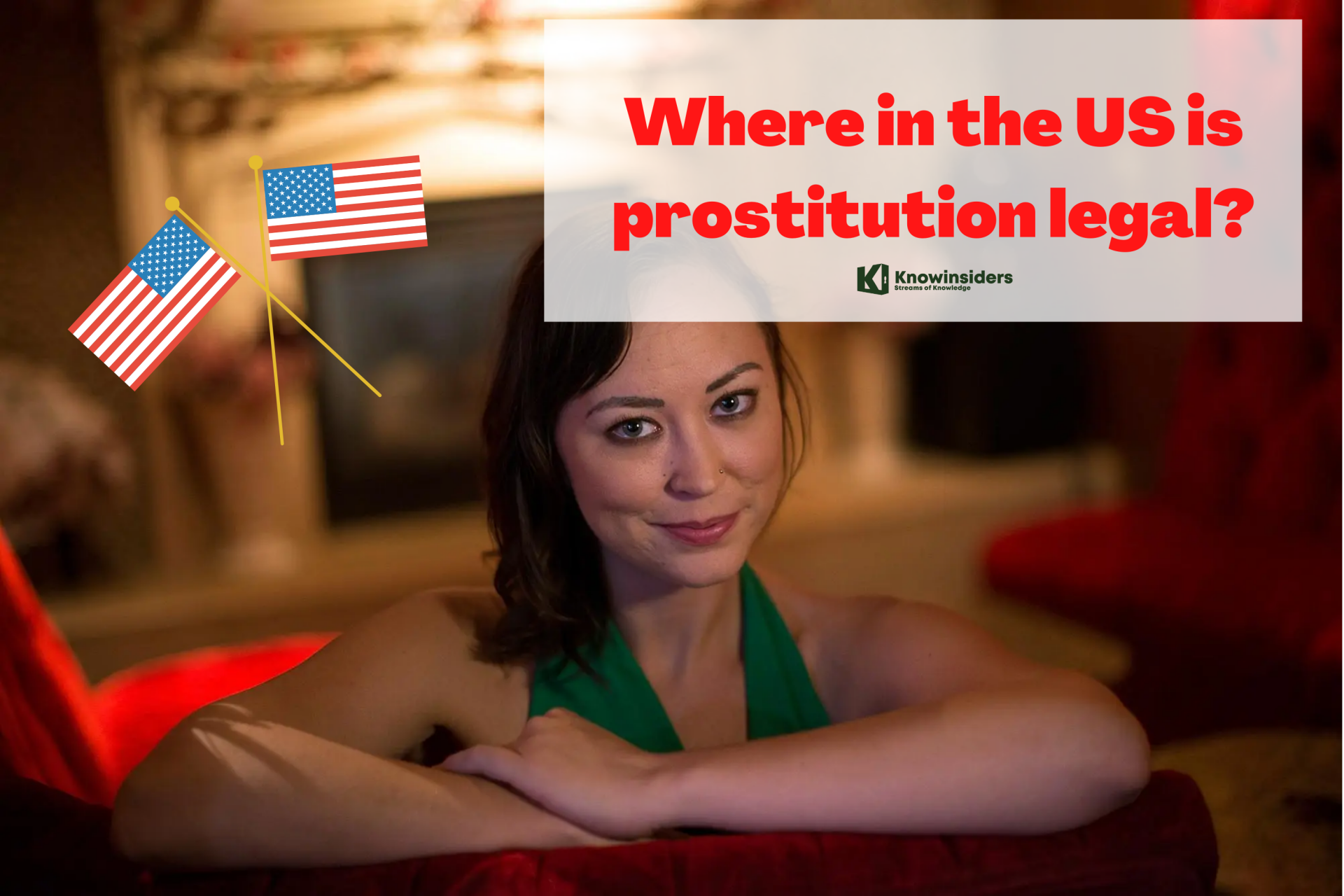 Where Is Prostitution Legal In The US? Where Is Prostitution Legal In The US? Prostitution is illegal in the United States with the exception of 10 Nevada counties. Prostitution is the legal issues that creates an intense debate in ... |
 Where Is Prostitution Legal In The World? Where Is Prostitution Legal In The World? Prostitution exists and will continue to exist despite bans and their legal status, due to reasons like poverty or unforeseen situations. |
 'Sugar Daddy' Dating Platform: Luxury Prostitution, Sugarbook’s founder, How Sugarbabies are Found? 'Sugar Daddy' Dating Platform: Luxury Prostitution, Sugarbook’s founder, How Sugarbabies are Found? The terms “sugar dady” and “sugar baby” are no more unusual to people and there is even an online dating platform called Sugarbook that commits ... |


